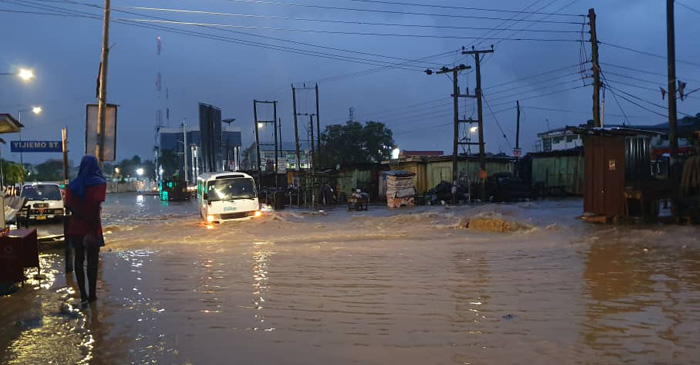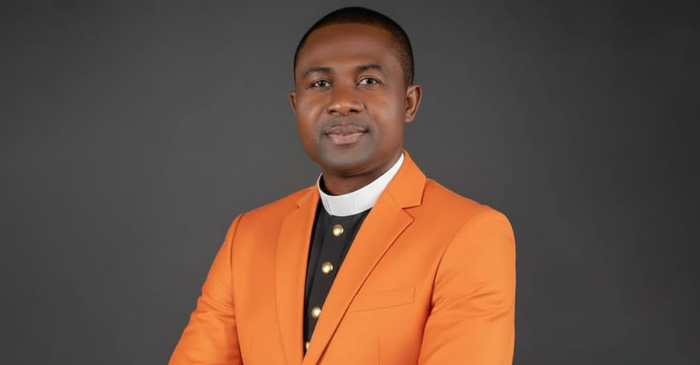
On the morning of Monday, May 19, 2025, Ghanaians woke up to the haunting news: at least three lives had been lost following the torrential rains that battered Accra the day before. Among the dead was a four-year-old girl from Nanakrom — a child with dreams yet to be shaped, a life full of promise, now turned into a statistic.
Municipal Chief Executive for the Adentan Municipal Assembly, Ella Esiman Nongo, confirmed the fatalities to the media. “In Lakeside, we lost two people, including a four-year-old girl at Nanakrom, and a gentleman around New Legon,” she lamented.
This, unfortunately, is not new. We have seen it before. And we will see it again — unless something fundamentally changes. Ghana seems to be growing disturbingly comfortable with tragedy, perfecting the art of counting the dead instead of preventing the deaths.
THE PRICE OF NEGLIGENCE
Each year, the rains come. And with them, floods. Yet each year, drains remain choked with plastic waste, building permits are granted on watercourses, and unauthorised structures spring up like weeds after a storm. Then the headlines follow: lives lost, properties destroyed, promises made — and forgotten.
In June 2015, Ghana witnessed one of its darkest days when over 150 people perished in the twin disaster of floods and a gas explosion at the Kwame Nkrumah Circle. That event shook the nation. There were tears, there were vigils, there were vows. But here we are again. A decade later, our tears have dried, and our vows have vanished.
A 2021 report by the Ghana Meteorological Agency warned that the intensity of rainfall events would increase due to climate change. The report called for stronger drainage systems and proper land use planning. But years on, gutters remain clogged, and regulations remain unenforced.
A SYSTEM OF SHARED GUILT
The problem is not just one of governmental failure. Citizens, too, are complicit. People build on waterways, dump refuse indiscriminately, and ignore warnings. “Indiscipline is killing this country,” environmental activist and architect Dr. Kojo Oppong said in an interview in 2022. “It’s not a lack of knowledge, it’s a lack of care. From the man in the street to the one in charge of the city, everyone seems to look the other way.”
Indeed, civic responsibility seems to have taken a back seat. When we ignore “no dumping” signs, when we bribe our way to secure permits for dangerous constructions, when we burn refuse instead of sorting waste — we help write the scripts of these tragedies.
EVERY LIFE MATTERS
A four-year-old girl. What was her name? What were her dreams? Was she excited about starting school? Did she love to dance, or sing, or draw? We may never know. She is now a footnote in a flood report. A reminder that we, as a nation, must do better.
Every life matters. Every Ghanaian lost to preventable causes is one too many. We cannot continue to reduce human lives to mere digits in damage assessments. We must feel the weight of every death — deeply and personally.
PREVENTING THE NEXT DEATH
Authorities must act. Not with words, but with will. The law must not only exist on paper — it must bite. Unauthorised structures on watercourses must be demolished. Waste management must be a national emergency. Town planning must cease to be a formality and become an uncompromising enforcement.
Citizens must also rise. We cannot continue to play the blame game. Discipline must begin at home — and in the gutter. “We cannot continue doing the same things and expect different results,” said Mr. John Allotey, former CEO of the Forestry Commission, at a sanitation forum in 2023. “We need a new mindset.”
Ghana must come to a point where one lost life becomes one too many. Where national grief translates into national action. Where government agencies are not just reactive, but proactive. Where citizens realise that a clean street, a cleared drain, and a demolished illegal structure are all ways to save lives.
Let the next flood not be followed by another obituary. Let us not wait to count the bodies before we begin to care. Let the memory of the four-year-old girl from Nanakrom — and many others like her — stir us into a national awakening.
Because truly, every life matters.
Written by Prince Kojo Asare (Head of News, Pent Media Centre)












